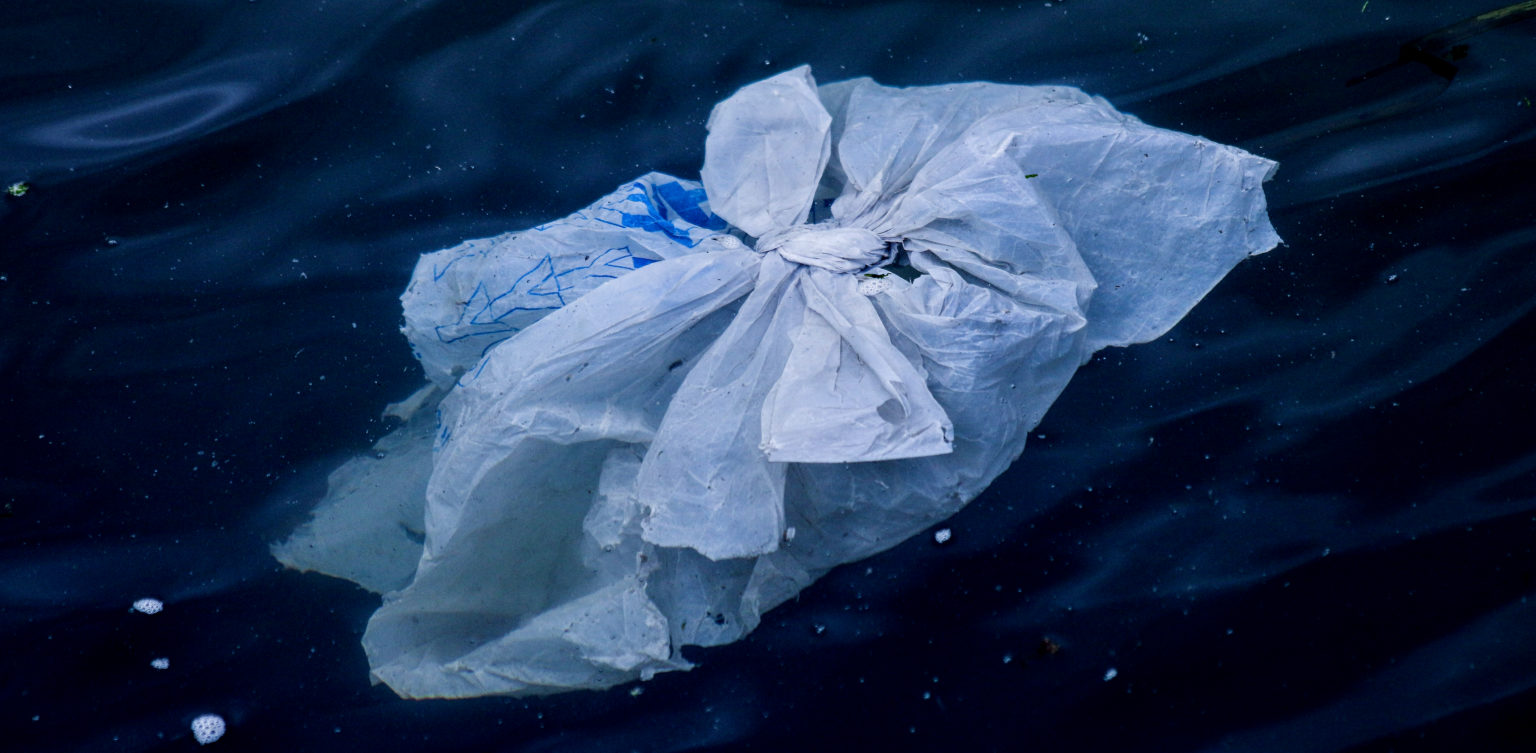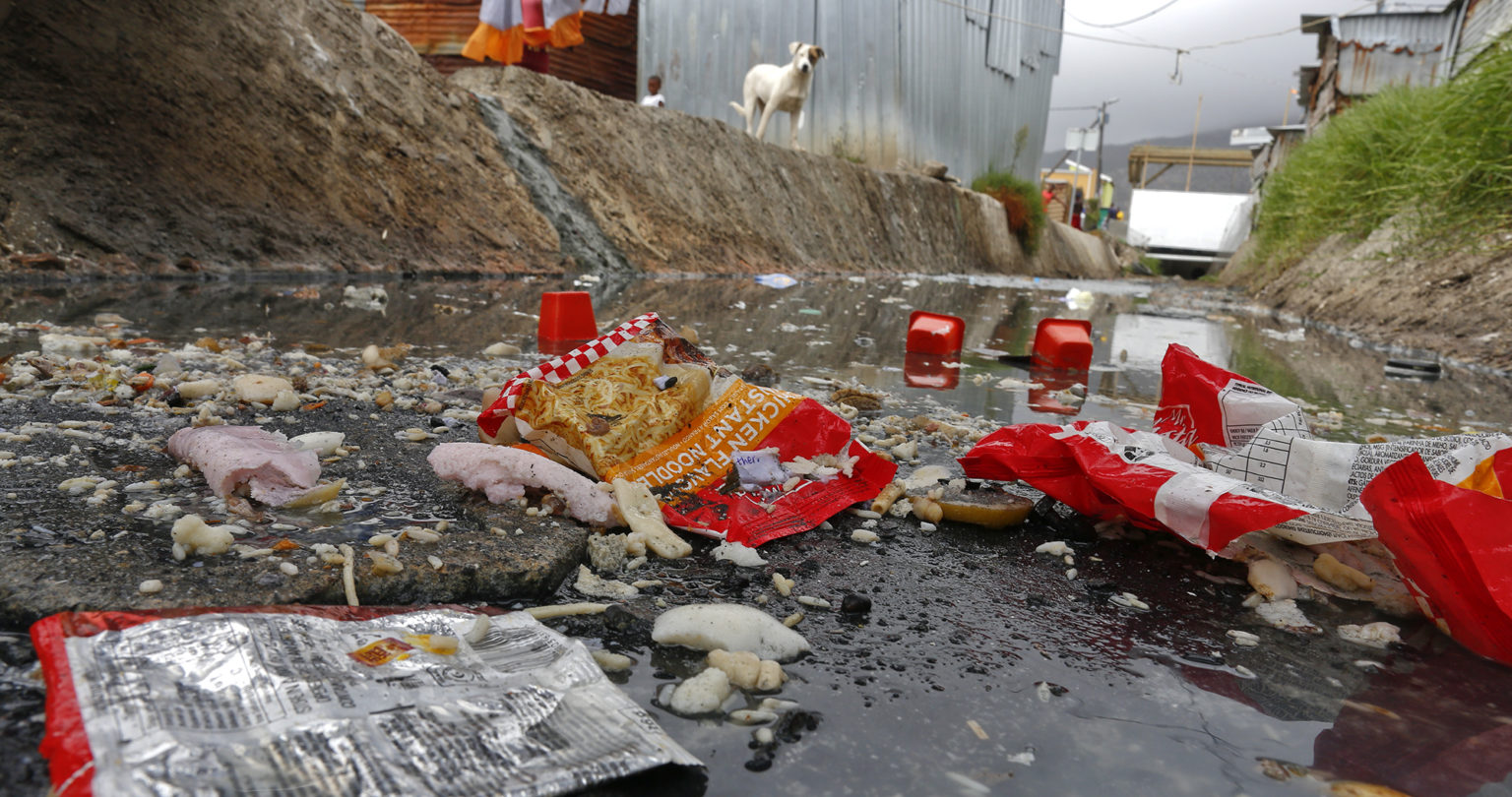At last – Woolworths makes a move to rid South Africa of plastic shopping bags
By Tiara Walters• 16 November 2020
 Photo by Brian Yurasits on Unsplash
Photo by Brian Yurasits on Unsplash
This year — initially meant to be the auspicious start of a new, spick-and-span decade — has proven so mystifying that some media, including a commentator on this platform, have suggested that there is a one-third chance that we may be living in an actual computer simulation.
Few psychological phenomena, however, can be as odd as humanity’s addiction to plastic — a substance praised as “convenient”, even as it chokes our rivers, strangles wildlife, ends up on our dinner plates, and breaks into micro units so small that global air currents are now dumping it as far afield as the Arctic. Convenient, nè?
For us here at Our Burning Planet, a pinnacle of this stupidity emerged when Woolworths stores were found in 2019 to be peddling tiny plastic knifespoon-things with every punnet of Zespri® SunGold kiwifruit.
They were called “spifes” (a portmanteau for “spoon” and “knife”), Woolworths told me. When asked how it intended a single-use plastic utensil like the spife to reflect its “Good Business Journey”, or how this might add value to lives of die-hard kiwifruit consumers everywhere, the retailer responded with an explanation on how to use a spife (“Cut, scoop, enjoy!”). However, it was quick to point out that the spife was a promotional item, which, coincidentally, had just “ended”.
In the ensuing months, I received unfailingly polite follow-up emails from the retailer’s marketing department, outlining its “single-use plastic achievements”.
According to Diane Peterson, Woolworths “sustainability communications consultant”, its green-living coups included “new speciality tomato packaging in a kraft box base with a recyclable clarified polypropylene lid”. Peterson also highlighted a coffee-cup recycling programme; and “diverting over a million 500ml PET bottles from waste streams”. This was apparently achieved by recycling a tsunami of bottles into polyester materials for its winter fashion ranges.
“Nice try, Woolies,” I thought, tapped the “x” on the email and moved to the next story in the queue. These attempts, though undoubtedly worthy, rang somewhat hollow while Woolworths counters across the country still groaned under the weight of plastic shopping bags, just bursting to pop into the next national flower on an acacia near you. (Also, I was struggling to unsee those spifes.)
In August, another email from the diligent Peterson, this time titled, “25 Woolworths stores are now plastic shopping bag-free”. This, and milestones before it, she wrote, resonated with the retailer’s mission to phase out single-use plastic bags. By 2022, she had stressed in an email a month earlier, the idea was to ensure all its packaging was either reusable or recyclable.
“Ah, nice try, Woolies,” I noted under my breath again, recalling visions of interviewing then environment minister Valli Moosa back in 2004 and suggesting that his attempts to make consumers pay for plastic shopping bags did not seem to be working as much of a deterrent. (This was not favourably received.) I hit that x.
Earlier this month, I was at my local Woolworths check-out, trying to balance all manner of groceries on available limbs and hands after forgetting the reusables at home. (This reporter may also have used the unfolding drama at the till to demonstrate that, no matter how many plastic bags were lurking instore, she was less likely to surrender than an outgoing American despot with an endangered combover budget to defend.)
“You know… ma’am,” the cashier sighed while this fiasco was failing to smooth the transition to the next customer in the small-basket line, “from next week 145 of our stores will be plastic bag-free”.
A day or two later, it was as if Donald “Twittler” Trump himself had bombed my inbox with caps. However, this time, the news — to be fair — could not be more welcome: “145 WOOLWORTHS STORES ARE NOW PLASTIC BAG-FREE.”
Despite a “challenging year”, Woolworths has continued “rolling out its low-cost reusable bag to 120 additional stores”, Peterson’s latest missive claimed. This, as part of the retailer’s “commitment to phase out single-use plastic shopping bags” and reduce its landfill packaging to zero.
Feroz Koor, Woolworths Holdings sustainability group head, chimed in: “We are delighted to be able to take such a significant step forward in the removal of single-use plastic shopping bags from our stores, especially at a time when we have had so many supply uncertainties. The local supplier of our low-cost reusable bag has been severely impacted by Covid-19 lockdown disruptions, which has lost them 692 hours of production time over the last eight months.”
The supplier’s production of reusable alternatives had increased to such an extent that the retailer could now “remove single-use plastic shopping bags from an additional 120 stores”, said Koor. “This is a substantial move to reaching our goal of removing all single-use plastic shopping bags.”
Lorren de Kock, WWF-SA project manager for a circular plastics economy, said it was “great to see Woolworths removing single-use plastic bags from these stores and taking on the task of educating their consumers about adopting more reuse actions in their daily lives and supporting local enterprises”.
She also pointed out it was “important for the consumer to understand that these reusable bags need to be reused to carry groceries or repurposed multiple times and not only used once”.
There you have it, folks. Just in case you were thinking of stashing those reusables in the trash.
Of course, one might say all major retailers in South Africa are late to the game — in these here parts, plastic shopping bags are more common than surviving Trump appointees at the US Environmental Protection Agency.
Yet, credit is due to Woolworths for pushing ahead with its sustainability aims despite the black swan of a year that has swooped down upon industry, the Two Oceans Aquarium’s Hayley McLellan told
Our Burning Planet.
A long-standing sustainability campaigner for initiatives such as “Rethink the Bag”, which promotes reusable bags over plastic counterparts, McLellan describes herself as an “environmental change agent”.
“If I think back to 2011, when I launched Rethink the Bag: the late Tom McLaughlin, then sustainability manager for Woolworths, was actually in the room. I was thrilled,” McLellan said. McLaughlin, said to have pioneered the retailer’s “Good Business Journey”, died in 2019. “This conversation has truly come a long way.”
She called the retailer a “leader in reducing plastic shopping bags”, simultaneously acknowledging efforts by grocery retailer Food Lover’s Market to opt for paper-based alternatives.
“The other big brands have some way to go in this regard,” noted McLellan, also known for her work in wildlife conservation, particularly injured penguins. “From an ocean advocate’s perspective, brown bags are better than plastic in the moment, but not if one looks at the entire life cycle analysis. Brown bags have a high carbon footprint and are not considered a long-life carrier bag. People need to be set up for success so that they form reusable habits, using shopping bags built to last.”
Plastic bags were “only the tip of the iceberg”, she added. “The plastic problem does not begin once it lands on a beach, in the ocean and then in a sea creature. It starts in the design stage, where conversations need to be had between designers, brands, consumers, environmentalists and recyclers.”
Being green in a society mostly married to the opposite can be hard; and Woolworths is not out of the plastic woods yet. It has a reputation for fortressing its fresh produce, among others, in non-recyclable plastic packaging.
Plus there are 730 stores scattered throughout the length and breadth of our land, of which 586 still need to free themselves of a wasteful product at odds with a circular economy.
But boosting its plastic bag-free stores to a complement of 145 from just 25 in August is a beginning — and throws down the gauntlet at the doorstep of competitors still lagging behind on this front.
Postscript: Our sources tell us that, for every six-pack punnet of kiwifruit sold at our local Woolies recently, someone had inserted a single Zespri® SunGold kiwifruit, neatly reducing the numbers of fuzzy kiwifruit (Actinidia deliciosa) per pack from six to five. While we want you to know that we see you, Woolworths, we can forgive you this once — especially since no spifes have been spotted anywhere near the kiwifruit section since the November 2019 promotion seemed to have died with a whimper. DM






